Schoenberg began Gurrelieder in 1900, but he didn’t hear it until 1913. By then, he’d moved on, and he ostentatiously refused to acknowledge the applause for what (as it turned out) would be the greatest public triumph of his career. Radical artist snubs ignorant masses: it’s a gesture that could stand for much of classical music’s post-1913 history. Even today, you won’t get far into a discussion with contemporary music buffs before someone declares that concertgoers need to be ‘educated’. Which always reminds me of a friend’s account of the night at Reading when Guns N’ Roses decided to play new material instead of the hits that the audience felt they’d paid to hear. I forget the exact details, but it involved Axl Rose being pelted with bottles of urine: an altogether less ambiguous relationship between creator and public.
Meanwhile, audiences have by and large repaid Schoenberg by avoiding him as if he were Ebola — until now, anyway. Mark Elder’s Manchester Gurrelieder was one of the great events of last season, and this Proms performance by the London Symphony Orchestra under Simon Rattle looked pretty much sold out. It’s not merely star power, either: there were plenty of tickets going begging when Daniel Barenboim conducted Birtwistle last month. Audiences do finally seem to have twigged that Gurrelieder, at least, offers the kind of high-octane, high-cholesterol fin de siècle thrill previously only available from Mahler, Wagner or Richard Strauss. (‘It’s like Tristan und Isolde times ten!’ commented the chap in front of me to his companion on the way in.)
As if to test that theory, the BBC programmed Mahler’s Resurrection Symphony the previous night. It made for an interesting controlled experiment: both pieces demand huge vocal and orchestral forces, and both aim for transcendence (Mahler’s symphony famously climaxes with a musical depiction of the Day of Judgment). Sakari Oramo conducted the BBC Symphony Orchestra in the least self-indulgent Resurrection I think I’ve ever heard; a thoughtful, crisply articulated reading that clarified Mahler’s textures with a thoroughness that you might be tempted to call forensic if it hadn’t been so self-evidently sincere. The only portamenti — those sticky-sweet slides between notes, generally regarded as integral to properly Mahlerian string-playing — were the handful that Mahler explicitly wrote into the score. They stuck out like a knowing wink.
But that’s how Oramo works. Over the decade that he was chief conductor in Birmingham, it was noticeable that he’d never quite unleash his players at full blast. Until, that is, he reached the structural point at which he judged that total commitment was necessary. Suddenly, he’d go all in —and you’d realise with a start that you had tears in your eyes. In this performance, that moment came about six minutes into the finale, where Mahler, having already sounded the Last Trumpet, glimpses hope shining across the abyss, and the massed horns lift their fists to the heavens. The pay-off was magnificent, supported by the air-wobbling thunder of the Royal Albert Hall organ and luminous solo singing from Elizabeth Watts and Elisabeth Kulman. You could call it a tantric approach to Mahler, except there was nothing deferred about the gratification that Oramo found along the way — the plaintive trombone solos, the tiny flecks of woodwind colour, and the quiet smile that he gave to the lilting melodies of the second movement. These pleasures sang out precisely because Oramo engages head as well as heart.
As for Gurrelieder, well, Rattle wouldn’t be the force of nature he is if he couldn’t make the Royal Albert Hall resound with sonic glory, and after 15 minutes the hooves of King Waldemar’s steed were already louder than Mahler’s horsemen of the apocalypse. It glittered with vivid orchestral detail, delivered with a flickering, quicksilver subtlety that placed Schoenberg in the same stylistic universe as two other Rattle touchstones: Parsifal and Debussy’s Pelléas. Just as long as you weren’t too worried about the words. Rattle played the whole thing like a symphonic poem, and despite a wonderfully sombre and eerie Karen Cargill as the Wood-Dove, Eva-Maria Westbroek’s soft-focus Tove, and ringing sprechgesang from Thomas Quasthoff, there were long stretches where I simply couldn’t hear Simon O’Neill as Waldemar. Possibly that was the RAH acoustic.
No problem on that front with the blazing choral singing: though with some 500-odd performers on stage, it did prompt the thought that neither orchestra could have given either of these concerts in their regular home, the Barbican. Audiences on both nights were at capacity and come the autumn, with Oramo and Rattle both in residence, London will enjoy the services of two strikingly different but equally intelligent conductors: both on peak form, and jointly capable of providing exactly the sort of energetic, imaginative and mind-broadening artistic leadership a 21st-century city needs. Shame they don’t have a decent concert hall between them.
Got something to add? Join the discussion and comment below.
Get 10 issues for just $10
Subscribe to The Spectator Australia today for the next 10 magazine issues, plus full online access, for just $10.
You might disagree with half of it, but you’ll enjoy reading all of it. Try your first month for free, then just $2 a week for the remainder of your first year.

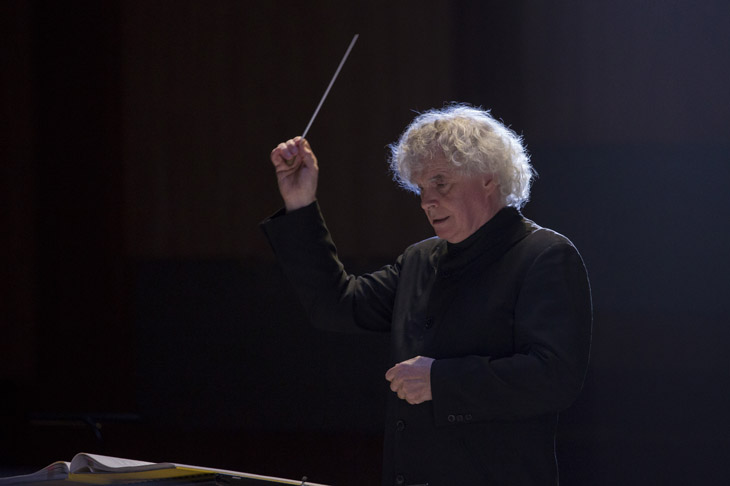
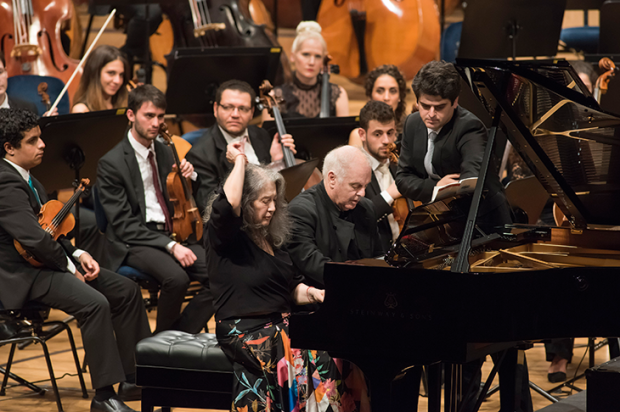
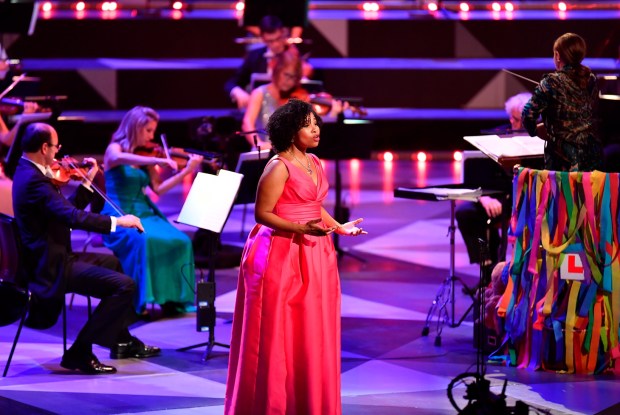
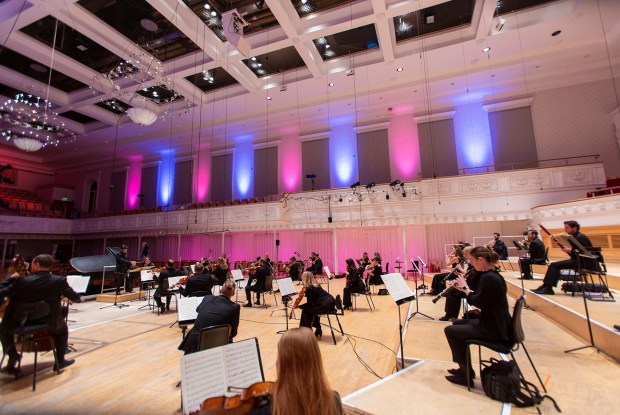
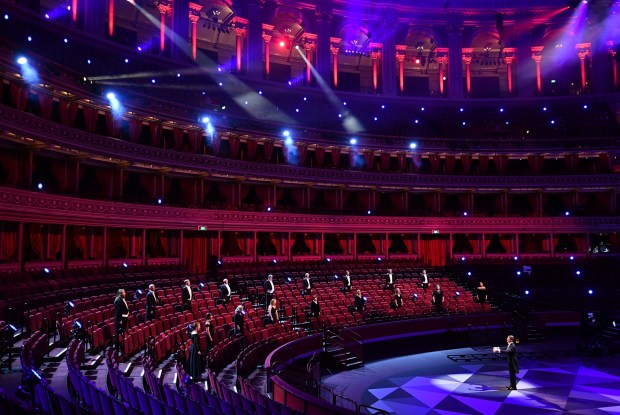
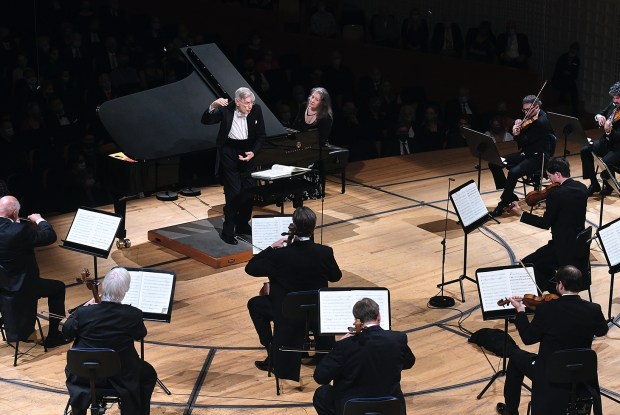
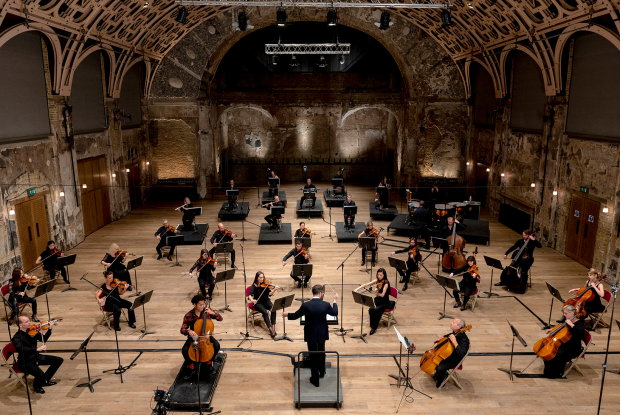






Comments
Don't miss out
Join the conversation with other Spectator Australia readers. Subscribe to leave a comment.
SUBSCRIBEAlready a subscriber? Log in